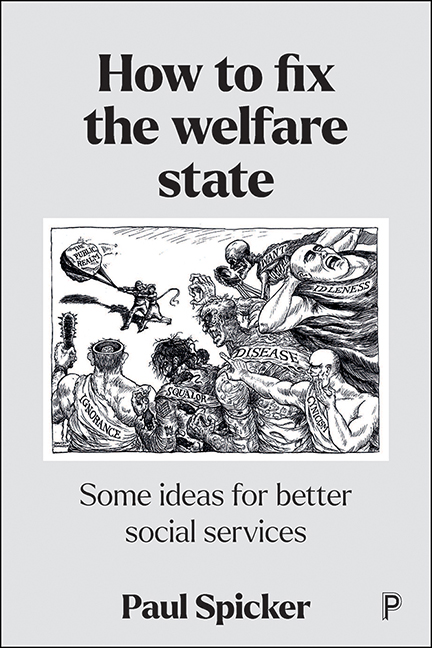Book contents
10 - The public services
Published online by Cambridge University Press: 15 September 2022
Summary
Conventionally, the discussion of the welfare state has focussed on the ‘Five Giants’ – want, idleness, ignorance, squalor and disease – and the services intended to deal with them. However, the focus of this book has been a discussion of the role of the institutions of the welfare state, rather than a focus on poverty and disadvantage, and the discussion of those institutions would not be complete without a discussion of the public services.
The ‘public services’ take into account such broad areas as policing, justice, roads, street lighting, waste disposal, museums, libraries and public transport. Public and social services have important elements in common. Many of these services grew from similar roots – in particular, the structures developed to manage the Poor Law, which led to the establishment of local government in the course of the nineteenth century. Social and public services have a definable institutional structure, they are all seen as part of the remit of government, and in so far as they are actually provided directly by government, they are publicly financed. The public services have not, however, always been seen as part of the ‘welfare state’ – and it is noteworthy that while people who use services such as schools or medical care are being described as ‘dependent’, people who ask the police for help, walk on a pavement or visit a museum are not. Many of us might wish that social services were viewed more like public services – that the service should there for everyone, and taken for granted in the same way as street lighting or drains – but the fact is that they are not seen as equivalent.
Public services have four key features. The first is that they are services to the public – not in the economic sense, which hinges on what they are selling, but in the social sense, that they actually do something directly to benefit people. Roads, sewers, parks, schools and social housing all deliver services to the public. Public functions which serve government, like IT or audit, do not, so they are not ‘public services’ in this sense; nor are areas of government activity, however important, which are focussed on other issues, such as economic management or foreign policy.
- Type
- Chapter
- Information
- How to Fix the Welfare StateSome Ideas for Better Social Services, pp. 121 - 137Publisher: Bristol University PressPrint publication year: 2022



